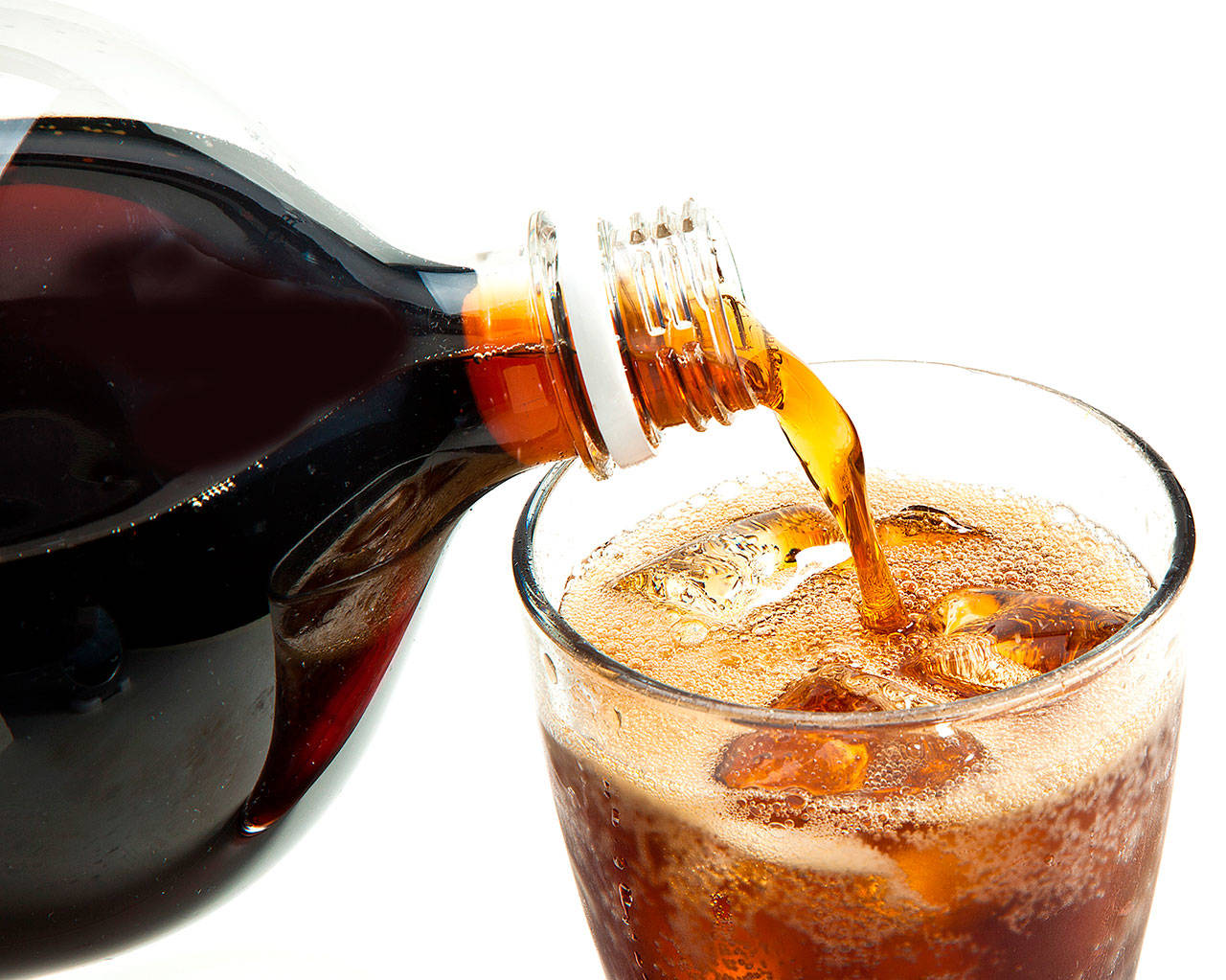Video: Herald Editorial Board discussion regarding I-1634, which would ban local taxes on sugary drinks and other foods. Speaking in favor are Jim Desler with Yes for Affordable Groceries and Pete Lamb with the Teamsters Union. Speaking against is Dr. Jim Krieger, professor of medicine with the University of Washington School of Medicine and School of Public Health.
By The Herald Editorial Board
Keilynn can relax; no one’s coming to tax the food in her grocery cart.
But someone is coming after her city government’s ability to set its own tax policy and her and her fellow citizens’ say in whether she would support or oppose such taxes in the future.
Keilynn is the Spokane mother shown in a TV advertisement in support of Initiative 1634, Yes to Affordable Groceries.
I-1634 seeks to prevent any municipal government from passing local taxes on food items.
As Keilynn pushes her cart through a grocery store — with her two daughters helping her pick out eggs, bananas and tomatoes — the mom laments: “Once they reach into our grocery carts, where does it end?”
Except it’s not Big Egg or the banana and tomato industries funding the yes campaign. It’s the makers of Coca-Cola, Pepsi, Dr. Pepper, Snapple and Red Bull who have provided almost all of the $20.2 million donated to promote the initiative to make sure that Seattle is the last and only city in the state to adopt a tax on sugary beverages. (That’s the third most raised for or against a statewide measure, behind the $32.7 million raised to oppose the 2013 initiative to label genetically modified foods and the $22.1 million raised this year to oppose Initiative 1631’s carbon fee.)
To be clear, no city or town in the state has passed or has proposed a tax on food, a fact on which the initiative’s supporters, its opponents and neutral groups including the Association of Washington Cities agree.
Sorry to disappoint some at the dinner table, but no one’s talking about taxing Brussels spouts.
The initiative is clearly in response to Seattle’s 1.75-cent-per-ounce tax on sugary soft drinks, which was meant to discourage the purchase of those drinks and has raised about $10.5 million in its first six months to fund nutrition and health education programs there. A number of other large U.S. cities, including New York and Philadelphia have passed similar taxes on soda.
With less than a year’s data on Seattle’s sweetened beverage tax, it’s early to judge its effects on the health of children and adults in its neighborhoods. But studies are under way, including by the University of Washington’s School of Public Health.
Sugary sodas, which can contain the equivalent of 16 teaspoons of sugar in a 20-ounce bottle, have been linked to obesity, tooth decay, heart disease and diabetes. In Philadelphia, where a tax on sugary beverages was launched in 2017, the consumption by African-American children has decreased.
Supporters, however, would rather talk about the rest of the grocery cart than the two-liter bottle of Mountain Dew. Supporters say that the initiative is necessary to close a loophole that — while sales taxes on food are prohibited at the state and local level — still would allow local governments to adopt excise and other taxes on foods. That’s the route that Seattle used in assessing an excise tax on the distributors of sugary soft drinks. In most cases, those costs have been passed on to the consumer within Seattle’s city limits.
But given the state’s history on food taxes, it’s very unlikely that any city would propose a tax on anything other than sugar-heavy soft drinks.
Grocery foods have been exempted from the sales tax since 1977, and an attempt to reimpose them in 1982 during a state budget crisis led to Republicans losing control of the Legislature that year, a September story by The Spokesman-Review notes. And again, when budget woes in 2010 prompted the Legislature to pass a tax on candy, bottled water and soft drinks, the state’s voters repealed those taxes through Initiative 1107, with 60 percent approval.
Opposition at the local level to a proposed tax on actual food would almost certainly mirror the past opposition seen statewide.
That’s why it’s unnecessary — and undemocratic — to give the state’s voters the opportunity to impose their will on individual communities. The state’s voters shouldn’t be the ones to decide local tax policy in Everett or Edmonds, in Gold Bar or Darrington. Those communities should make their own decisions on local taxes, as they always have.
Most cities, before they consider following Seattle’s lead, will want to see how effective that city’s tax is in discouraging consumption of high-sugar soft drinks, particularly among youths where the concern for diabetes and other health problems is highest.
But that decision should be left to individual city councils and the voters in those communities.
Initiative 1634 is a saccharine-sweet attack on local government and your vote. The Herald Editorial Board recommends a no vote.
Talk to us
> Give us your news tips.
> Send us a letter to the editor.
> More Herald contact information.

























